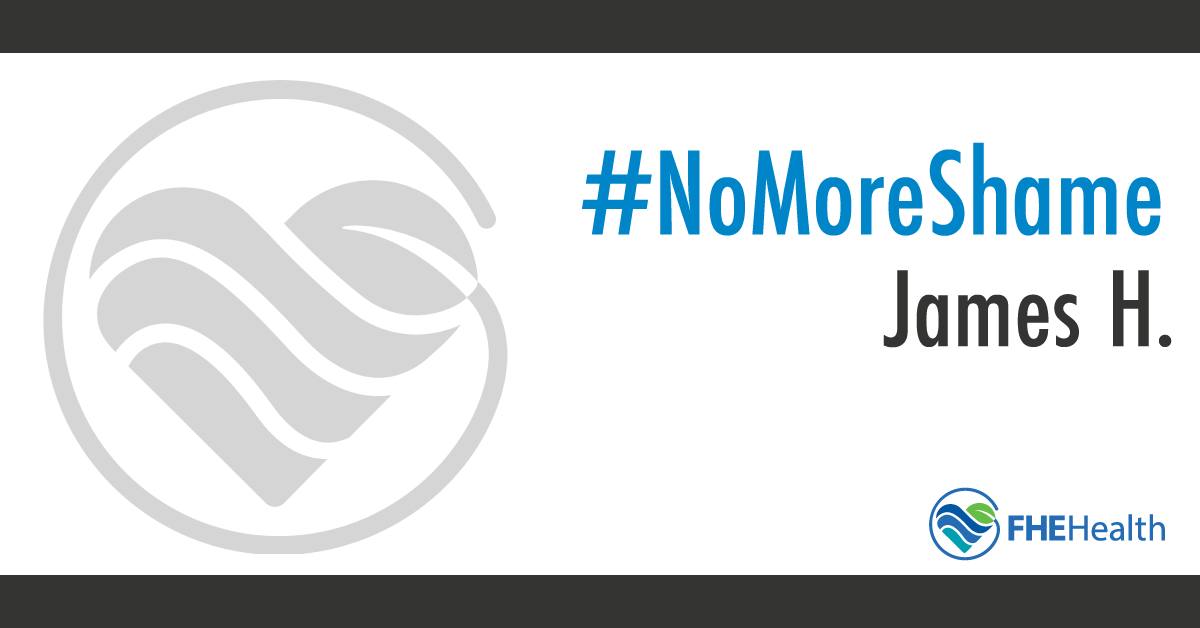
“The day I developed a love for alcohol was July 8, 1984,” James H. recalled in a recent interview. “I was 13 years old, and my parents were celebrating their wedding anniversary. The night before, I went to a keg party three blocks away.”
As the youngest of 12 children in an Irish Catholic family, James had always been “the littlest in my family” and keenly aware of it.
From a First Experience of Alcohol to Problem Drinking
When he walked into the party that night, he again felt like a “little kid” surrounded by “big high school kids and girls,” until he “found the keg … and just by sitting by the keg and pumping everybody’s beers all night,” he suddenly went from feeling small to feeling big and popular, “like a GQ model.”
The next morning, on the other hand, James felt awful. It was a Sunday morning and soon he’d be attending Mass, only with a bad hangover.
“I woke up and was feeling horrible, and an older sibling said to drink a beer before Mass, according to the old saying ‘hair of the dog that bit you.’”
When James followed this advice, he made a consequential discovery: “I got drunk, got sick, and found the cure within a 24-hr period.”
After that, James started drinking more. Three years later, when he was a junior in high school, is when the problem of alcohol “became a reality for me.”
James made this realization recently. He was packing up boxes during a move and stumbled upon a yearbook from his junior year. “A lot of the messages inside” encouraged him to “ease up on how much you drink.”
What Contributed to the Struggles with Alcohol
Years later, with the help of treatment and recovery, James can identify more than one cause of the alcoholism, starting with his upbringing.
Family of Origin and Upbringing
“Before I started drinking, my older siblings all had families, and we’d get together for holidays and the older men would be drinking; and instead of being grumpy, they were fun.”
Alcohol also gave James some swagger with his older and bigger siblings: “I couldn’t beat up my brothers, but I could outdrink them.”
Chronic Exposure to Trauma
Adulthood — and 33 years as a firefighter for the city of Denver — only gave more reasons to turn to alcohol as a coping mechanism. James began working for the fire department in 1991 and “saw a lot of things that really bothered me,” he said. He described some of that trauma this way:
The chronic exposure to trauma began manifesting as symptoms of PTSD in 1998, James said. He remembered one traumatic event as particularly triggering. It was when he responded to a call involving “a man who was decapitated.” The man’s child “was born when my child was born, and the man had a little boy, and I had a little boy.”
“It was Christmastime, and I was about to celebrate my first Christmas with my son, and so was that man,” James said. Thinking about that, and “about the pain that he wouldn’t be there, and his son would never know him,” sent James into a dark place.
PTSD and Depression
At that point, James knew he was dealing with PTSD and thought he could “drink it away.” Looking back, he realizes this effort to “bury” the pain only made the PTSD and the alcoholism worse.
Eventually, these issues escalated into major depression. Three weeks after watching a man shoot himself in front of the firehouse, James attempted suicide.
The Turning Point and Life in Recovery
The turning point came after the suicide attempt. James was Baker-acted for 72 hours, and “the doctor wouldn’t let me go until I found treatment,” he said.
A friend suggested FHE Health’s specialized treatment program for first responders (Shatterproof FHE Health). Between this friend and James’ wife at the time, “they did all the legwork to make sure there was a bed for me and that I wasn’t going to leave.”
Today, James is honest about the fact that life in recovery has had its challenges. Since leaving treatment, he has weathered a divorce, a move, and the loss of a job and unemployment benefits for actions that he took on March 28, 2024 (the date of his suicide attempt). Throughout these adversities, James has maintained sobriety with the understanding that “I am the only one who can do this and keep myself mentally fit.” He also credits his sponsor and a “great therapist” for helping him pull through the hard times.
Sobriety has enabled James to more fully enjoy life, too. He recently celebrated the birth of his granddaughter; and, whereas before “life was so chaotic that it was a blur of lights and speed,” now “I can sit still with myself and have peace, meditate, and listen to the birds,” he said.
With recovery, James has found a new sense of purpose: “I’ve felt like I have a calling to speak, but have always thought, ‘What makes what I have to share special?’ I figure that if people don’t hear my story, they’re going to be in the same place I was.”
Final Words of Encouragement
If James could offer any word of encouragement to someone who is struggling with addiction or a mental illness, what would it be?
The bottom line? “If you’re struggling, ask for help.”






